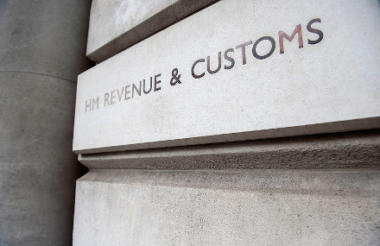HMRC has published a summary of responses to the consultation on simplifying the Gift Aid Small Donations Scheme, but the Institute of Fundraising has called it a "missed opportunity".
The consultation, which was published in April and closed last month, included proposals which aimed to simplify the scheme and increase take-up among smaller and newer charities. However, it has been criticised for not going far enough, with the Charity Finance Group calling it "tokenism at best".
GASDS was introduced in 2013 to enable ‘top-up’ gift aid-style payments for small cash donations but has raised far less for charities than was originally intended. Latest figures suggest that it raised £21m in 2014/15 – far lower than the £135m the government had expected the scheme to be raising by 2015.
In the summary of response documents, the government announced that it will bring forward legislation to include contactless payments within GASDS, stating that it is “important that the legislation continues to reflect the realities of modern fundraising”.
It said: “The government is satisfied that contactless donations could be included within GASDS without imposing significant extra burdens on charities who choose to use the technology. The government will therefore bring forward legislation to include contactless payments within GASDS.”
However it added that the government’s position remains that GASDS should “only be available for small donations in which obtaining a full gift aid declaration is not practical or feasible” and therefore other donation methods should not be brought within scope of the scheme.
HMRC also announced that the two-year rule, which requires charities to have been registered for at least two years before it can access GASDS, will be removed. It also said it will remove the requirement that charities must have a history of gift aid, which goes further than the partial-relaxation that the consultation had suggested.
Responses to the consultation had included the call to remove the “matching requirement” from the scheme, which obliges charities to have claimed gift aid on an amount that is at least 10 per cent of the value of the donations on which GASDS is being claimed.
However, the government stated: “The Gift Aid Small Donations Scheme is designed to complement gift aid by providing a similar top up when it is not practical to obtain a gift aid declaration. The scheme is not intended to be an alternative to gift aid and where charities can obtain a gift aid declaration, they should do so.
“The government therefore believes that retaining a matching requirement is important, both by providing a link with the full gift aid scheme and by incentivising charities to claim more gift aid.”
‘A missed opportunity’
Heather McLoughlin, policy and public affairs officer at CFG, said: “We are disappointed that HMRC has failed to use this opportunity to engage with our substantive arguments to make the Gift Aid Small Donations Scheme work for the charities that need it most. The failure of HMRC to propose a change to the matching requirement means that once again small and medium charities will find it difficult to use the Gift Aid Small Donation Scheme.
"Our survey with NCVO and Institute of Fundraising showed that there was a strong need for HMRC to make the scheme as simple as possible so that it works best for all charities. This response from the government is tokenism at best and CFG will be working hard to encourage HMRC to improve the Gift Aid Small Donation Scheme so that it reaches it potential.”
Stephanie Siddall, policy officer at the Institute of Fundraising, said: “We wanted the government to make it easier for smaller charities to be able to use GASDS and so are pleased that HMRC have said that they will remove the two year rule and the gift aid history requirement completely. While we are glad to see that HMRC have recognised that contactless payments should be eligible, we believe this should have been a wider extension to all forms of small donations.
“However, while some steps will be taken to improve the scheme, we feel that more could have been done. We believe this was a missed opportunity to make the changes necessary to enable more and smaller charities to benefit from the scheme, particularly by maintaining the matching requirement which we, alongside other sector bodies, strongly recommended should be removed.”
The full summary of responses is available here.
Related articles












